Rebuilding after the flood
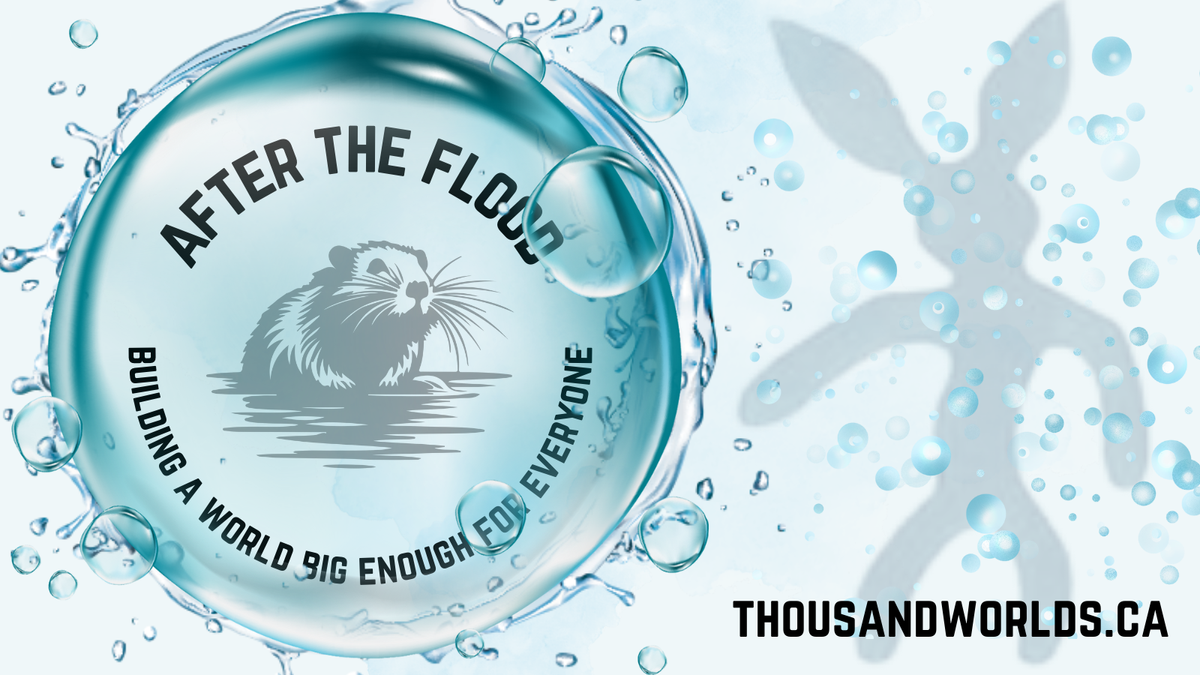
Last week Nanaboozho took on some water panthers after they killed his younger brother, unleashing a flood that covered the world. That's quite a story and within it we focused on the power of dreams and the need to take them seriously, because had the young wolf taken Nanaboozho's dream seriously none of this (waving vaguely at everything) would have happened.
In the flood story I grew up with, the waters were a judgement on humanity. God wiped out most of the human race alongside other-than-human life besides fish who probably did just fine. Idk why it adorns nurseries and children's books, it's a very messed up story to tell children. But this is not that story. This flood was unleashed because Nanaboozho was angry about the water panthers killing his nephew and hanging his hide on the door as a trophy. Yes, the younger wolf should have listened to Nanaboozho's warning but how long was he supposed to live carefully? Aren't the water panthers themselves the ones who are actually to blame?
Yes they are.
Before we go further, let me offer the chi-est of miigweches to new bestie Hilary, and friend with benefits Sam. Also hello to newly signed up free members! Paid subscribers help keep the lights on, but anyone can help expand my audience by sharing this post through email or on social media.
I am working my way through Ojibwa Texts by William Jones with some additional insights from The Trail of Nenaboozhoo and Other Creation Stories as well as Serpents and Other Spiritual Beings which are stories collected and told by Isaac Murdoch (Serpent River First Nation), and Gii-Nitaa-Aadisooke: Ojibwe Legends from Lac Seul collected and told by Patricia Ningewance (Lac Seul FN). Other sources are linked as they come up or included in another section about what I'm reading.
By the way, these essays are not meant to be authoritative interpretations, just personal reflections.
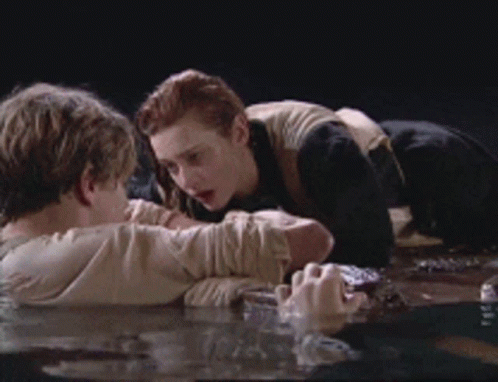
So the waters rise and rise, and this time they do not recede. The world is flooded and eventually a small group of animals are gathered around a floating mass of detritus and they start lamenting if they will ever again be on dry land. Floating is fun, but so is being able to get dry again, Especially if the water is cold. In Murdoch's version of the story he notes that the flood was not simply unleashed by the killing of the water panthers (serpents in his story) but that the flood was done by the serpents in order to get back at Nanaboozho.
Nanaboozho is also hanging on tight and as one is prone to do after one's actions have some unintended consequences, he ponders those actions. Murdoch mentions the Anishinaabek, many of whom had perished in this flood and although some of them had survived by "being tough" Nanaboozho says that he has to do something, has to find a way to bring land back to the people. The original #LandBack y'all. Maybe it is true, he says, that I have done a wrong that may never be repaired. And it may also true that before the waters overwhelmed everything, I could have grabbed a handful of earth. These things are probably true, but here we are. And if we don't do something then we're all going to die.
So who will get me some earth?
In some versions Nanaboozho tries and fails, at which point he turns to the animals who one by one make an attempt and one by one they fail as well. They talk about swimming down as far as the trees, but are unable to get any further, which is an interesting detail that isn't included in a lot of versions. That's how much water was unleashed. And worse, in Jones' stories everybody who tries to do this drowns. Now sure, Nanaboozho is able to breathe life back into them but still. Are you going to risk your life on the chance that Nanaboozho will be able to revive you? Even if he's right in saying that if we don't do this then we're all going to die anyway, it's still got to be a tough sell that gets harder as everyone who tries resurfaces with lungs full of water.
Muskrat says, this is the way, and down he goes.
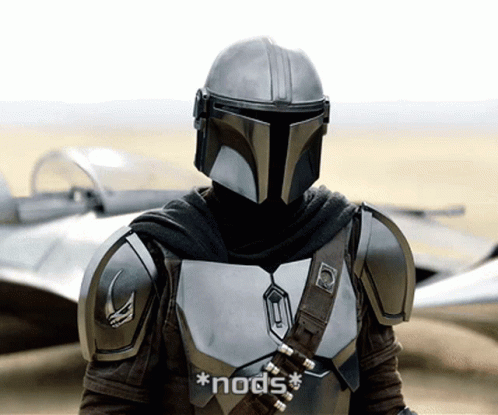
In most versions muskrat surfaces with some earth in his paws. In Jones' story he has some in his mouth and armpits as well. That little guy brought up as much earth as he could possibly manage and Nanaboozho, after restoring Muskrat to life, blows on the ball of wet earth and the land spreads out beneath their feet.
I want to pause for a moment here to honour Muskrat's faith. He had watched all these animals try and fail, coming up with nothing but lungs full of water, and then Nanaboozho breathing life back into them. Then, while he's down there he does not make a desperate grab for earth before racing back to the surface, he takes the time necessary to get as much as he can carry knowing that he doesn't have to make it back to the surface alive. The others were planning for a round trip, turning back while they had what they thought was enough air to get back. He knows he doesn't have to rush. Planning a one-way trip, he pulls himself down using the trees and then takes his time to get enough knowing that he will float to the surface. Let me emphasize this: he puts some dirt under his armpits which means he had no intention of extending his little arms to swim up. This part of the story gets more extraordinary the more I think about it.
I don't need to spell out how that applies in justice work, do I?
But just in case. Because this isn't just about Muskrat. This is also about Nanaboozho and what he has proven he will do. I don't want to drag the other animals as unfaithful or anything, without their failures Muskrat wouldn't have seen what he needed to see. This is about knowing you can count on your comrades when you put yourself on the line for the sake of building community because every one of them put themselves on the line. This is about risking everything because your comrades have proven they can be trusted with you at your most vulnerable. This is not just about rebuilding the world after a catastrophe, this is about what we are building now so that we CAN rebuild the world.
If I may go a little off track. Last year I participated in an action that blocked a rail line for hours. Our intention was disruption, not holding the rail line forever, and disrupt we did. Many of those who participated were arrested after the police pushed us back onto the rail line (even though we'd already packed up) so that they could arrest us for trespass. The group that organized this was prepared. They knew who could be arrested and who, for all kinds of reasons, could not. Those who could passed their personal items off to those who could not and stood their ground, protecting the rest of us from police action that included pepper spray, shoving, and police violence while the rest of us packed things up and scattered. Jail support was organized, care was in process, it was an amazing thing to be part of. We grabbed our handfuls of dirt knowing that the people who had organized this action had proven in the past that they were reliable, so we could trust them as they organized bigger stakes actions.
After he gets this earth and blows on it, Nanaboozho enlists various animals, who they are varies depending on the story, to take a walk or a flight and see how big the land is getting. Once he hears that it has gotten too big for them to report on, he stops and the animals are able to spread out. They find the places that are the most suited to them, and in those places they find their full potential. In another departure from the two-by-two story I grew up with, these are not the only animals that survived. There were other animals clinging to other floating islands of debris, there were Anishinaabek who survived by being tough. There is no indication that the survivors were righteous in any way, they just survived and Nanaboozho along with them. We're like that too. Survivors aren't inherently noble or righteous, and we do them (and ourselves) a great disservice when we frame them that way.
In the first version I ever read Nanaboozho sings and the animals dance and a new world comes into being and that is the most beautiful image: singing and dancing new worlds into being. That image isn't in any of these versions I have now, but the theme of cooperation is very much present which makes this flood story a very good story for this particular moment because this flood that we are under, socially and politically, is not (despite whatever you might hear from evangelical pastors) an episode of divine judgement. It is the result of social conflict, it is the result of power and oppression. It is the result of our reactions to oppression and then the reactions of the powerful seeking to maintain power. And it is true, as Nanaboozho says, that if we don't do something we're going to die.
Racism, specifically, is the state-sanctioned or extralegal production and exploitation of group-differentiated vulnerability to premature death.
Ruth Wilson Gilmore, Golden Gulag: Prisons, Surplus, Crisis, and Opposition in Globalizing California.
I love this definition because of how clear it is about what is at stake when we talk about racism, and it works if you swap out other forms of marginalization, other ways that we exist in differentiated groups. And it also allows for a strong argument against the idea that Christians, men, or white people are somehow also persecuted by the demands of those they have shoved aside. Just look at the death rates for various populations. Who, collectively speaking, is at the greatest risk of premature death, which is, as Gilmore later clarifies, death at any age that could have been prevented. Because in this story, the water panthers are fine in the face of this flood. They live in the water so the flood they have unleashed doesn't harm them at all.
If we don't do something, people are going to die. People are going to die and the ones who did this will be just fine because the flood they've unleashed is one that they are going to survive. My maternal grandmother fled Stalin and found safety in Hitler's Germany. I think about that a lot lately. I think about the fact that I might fear an authoritarian government because of what it means for those made marginal, but I remember that there are also many who will be safe. They will be safe, and somehow they will convince themselves that we brought this on ourselves because we didn't act right or have the correct beliefs or something.
As we learned last week, visionaries have dreams, dreams about other worlds, other ways of living in community. Dreams that are not just visions of what might be, but communication from spirit about what must be. And we listen, until we don't.
There's all kinds of reasons why we stop listening. Last week I wrote about complacency, how we start thinking that the nothing that happens when we follow the instructions in the dream is what would have happened anyway. This week I want to think about the frustration of constantly adjusting ourselves to suit people with the power to enforce their rules. Throw the stick. Stay off the ice. Comply with authority. Make yourself small. People tell us to avoid doing the things that will set them off, will draw their attention. Even in our own communities we get told to keep our heads down and focus on surviving except that doesn't change anything about injustice and the threats that marginalized people live under. Besides, as Nanaboozho says, if we do nothing then we're going to die anyway.
So we get angry and frustrated, which become resistance and refusal.
Resistance and refusal are not the same thing, and they both have a place in our movements. Resistance protests and blockades, resistance demands changes to policy and legislation. Resistance says no business as usual until those with authority change the things that need changing. Refusal puts that energy to a different use: instead of pushing back on policies that exclude us we go create something else. These are not mutually exclusive, and most organizers move back and forth between them depending on goals and strategic needs. And both of these have consequences that range from funding cuts to criminalization.
The Civil Rights movement was filled with resistance, refusal, and consequences that were all out of proportion to the rights being sought which communicates something very clearly about those with authority. But that's how some serpents are, in the story Nanaboozho says they are jealous of his powers. I don't know that jealous is the right word for what we're experiencing, but it is certainly resentment. White men and the women who protect them were so afraid of losing their grip on power that the backlash to the Civil Rights movement which ended segregation was the war on drugs which segregated Black men and women by putting them in jail. Reagan invented the Black "welfare queen" to justify cuts to social spending even though white women collect far more in social assistance than Black women do, and even though white landowners in Canada and the US benefitted from the largest government handout ever when these governments wanted white folk to settle all that new land.
And before you think that is ancient history, take a look at what's planned for Gaza. Be sure to read all the way down to where Netanyahu praises Trump as Israel's greatest friend and says that his plan is "worth paying attention to" and "could change history."

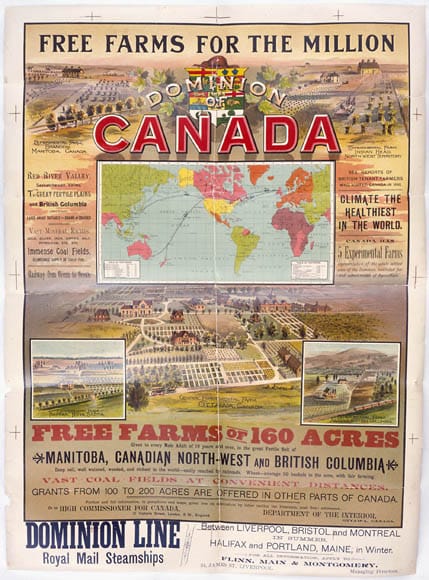
As Two images. On the left is a smiling man under the headline, The Israel Real Estate Expo: Secure your future in Israel with a home of your own. Dated February 22, 2024. On the right is a poster from the 1800's offering "free farms for the million" in the Dominion of Canada. Free Farms of 160 acres in Manitoba, Canadian Northwest, and British Columbia, grants from 100 - 200 acres offered in other parts of Canada.
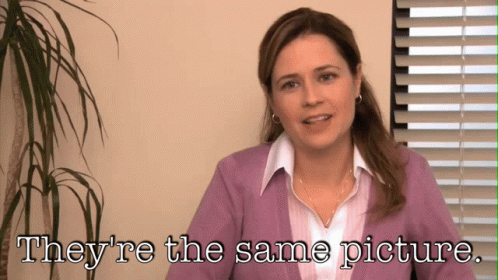
And then there's the ways that we do this to ourselves.
We experience an injustice, people chirping about us behind our backs. Former friends, former comrades, who are far more interested in stirring things up than they are in actually resolving the things they're going on about. And although "let them" vibes well with Ojibwe principles of non-interference it's hard to do that when their chirping has material consequences. When the things they say impact your collective or your job.
But in Ojibwe, the idea of "let them" has a darker side. There's maanoo ge-doodawind which means something like "they can go to hell" or "let them be dealt with." It's out of your hands, but something bad is going to happen to them because of what they're doing. There's also onjinewin, which is something like "what people put out is going to come back to them so you don't have to be involved."
Now clearly, Nanaboozho did not take this into consideration when he went after the water panthers. Let them is a strategy, not a way of life. Nanaboozho's action against the water panthers was neither swift not impulsive. There was planning, collaborating with others, and the killing of Toad Woman in order to get close enough to kill the water panthers. And there were consequences that were borne by more than Nanaboozho.
Sometimes the things we have done cannot be fixed. Nanaboozho recognizes this. He also knows that if we can't fix it, we can build something else instead. I can't fix the harms of my years in Child Welfare, but that's part of why I started the Nii'kinaaganaa Foundation which provides material support to Indigenous people every month. One of the organizers we support works directly with young mothers and her work keeps CAS at bay. Nanaboozho can't fix the harms of the flood that his actions unleashed, but he can work with those who survived along with him to build another world.
To be clear, the flood may have been triggered by Nanaboozho's killing of the water panther, but they're responsible for it. I don't want that part to get lost. The violence that follows any civil rights legislation or action may have been triggered by the actions of activists, but they aren't responsible for it. Those who have the power to compel behaviour could make other choices in response to the resistance and refusal that builds in opposition to their oppressive actions. Kind of like how police always justify their violence by saying somebody shouldn't have resisted. They have other options, they choose violence.
Along with other animals, Nanaboozho builds a world that is big enough for everyone, including the water panthers. He doesn't go kill the rest of them. As my youngest has said, when the revolution comes landlords are going to get the wall. Four of them and a roof just like everybody else. That's the trouble with revolutions based in revenge, like the French Revolution, eventually that turns inward. I'm not interested in that kind of future.
And I particularly like that Nanaboozho sent out a variety of animals to see if the world was big enough, because what's right for some will not be right for everybody. We need to listen to a lot of different voices in our resistance and refusal. We need to be willing to change tactics or even adjust our goals on our way to a more just world. We need to build communities and friendships in which we have each other's backs as we move towards larger goals. And we need to think about the unintended consequences of our actions when we confront injustice, because one way or another it must be confronted even if those who went before you failed.
This is the way.
78 Acts of Liberation: Tarot to Transform Our World by Lane Smith. I am more tarot-curious than a tarot reader, and I collect decks because they are beautiful, each of them telling a different story about the world around us. In 78 Acts of Liberation Lane Smith uses the cards to tell a story of collective organizing, imagining each of the cards as social justice activists and movements. The individual self-reflection provoked by tarot practice is important and necessary, Smith doesn't shy away from that, but they also offer a way to read collectively and towards a more just future for everyone.
Shutter by Ramona Emerson. I say this all the time. I do not read enough fiction. Last week I was in Portland after an event at the Oregon Humanities Center in Eugene and I spent two hours of a rainy afternoon at Powell's Books where I googled "native horror" and then searched for the authors among the shelves, which is how I found Emerson's book about a Diné forensic photographer haunted by the dead she photographs. It's an amazing story about the past reaching into the present and the limits of justice.
The Message by Ta-Nehisi Coates. This is the kind of self-reflection I aspire to, and I read this book just in time to work it into Bad Indians Book Club which I see as a kind of bookend to Coates' work. He writes to the young writers that he teaches, imploring them to use their writing to change the world. I want the same for readers. In The Message, Coates takes us to Dakar Senegal, Columbia North Carolina, and Palestine. In each of them he considers the stories we've been told, the nationalist narratives that mislead us, and the folly of creating nationalist narratives of our own.
Fables and Spells: Collected and New Short Fiction and Poetry by adrienne maree brown. This is simply a lovely book filled with poetry and short stories that uplift and challenge. They imagine a world in which water has agency, aliens remove people with a dominating mindset until they sort themselves out, a dinosaur who reflects with amb on the work of Octavia Butler, and so many more. I come back to it frequently and it's getting that well-worn look of something much loved.


And don't forget to join up with the Nii'kinaaganaa Foundation. Every month we collect funds from people living on Indigenous land and redistribute them to Indigenous people and organzers. You can find out more information on the website which is now powered by ghost, which means that you can become a subscriber there just like you are here!
